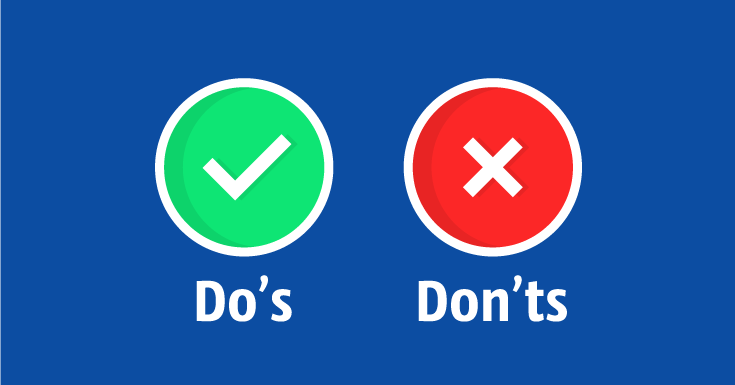Simple Data Governance – 3 Do’s and 3 Don’ts
Principal Analyst

Data governance is a subject that comes up in our conversations with institutions every day. Many institutions suffer from the effects of issues like data silos, varying data definitions for similar fields, inconsistent data access criteria and processes, and poor data quality. In this blog post, we’ll discuss some ways to get started with data governance without overcomplicating it.
How can you mobilize your data experts to solve your institution’s biggest problems without the need for torturous committee meetings? Organization and process are necessary, but hours-long discussions involving large committees to solve seemingly insubstantial problems are not an answer any institution should spend time on. Bring your data governance into focus around solving specific problems and building functional process frameworks for faster results.
Do
#3: Gather Your Data Experts
Finding existing data experts from across departments, functions, and job titles and then gathering them into a virtual team may be the most important first step. These critical people already hold many of the answers to data problems that exist in your institution. They may have no authority to fix some things outside their own areas, but they often use informal networks to get things done. Find the existing data expert network at your institution and use it to begin your journey.
#2: Define Your Roles
Defining roles and basic rules of engagement using traditional data governance roles (data steward, data manager, etc.) can help each player on the team know how they can leverage their experience to improve the data environment. This may involve giving up perceived power to gain team power, but it is critical to ensure that decisions are made by the right people at your institution. You will not need senior leadership to weigh in often, but you should involve them when decisions have an institution-wide impact.
#1: Solve a Problem
As a wise colleague once taught me, “If you are not solving a real problem, you are irrelevant.” Using a real data problem to prove that data governance techniques are relevant is a powerful way to build momentum. If your data experts have defined roles, they will know what is in bounds and out of bounds, and where to escalate a problem when they can’t resolve it on their own. They can also leverage the data expert community to help them figure out the solution together and learn sustainable processes from the experience. Use real problems opportunistically to build capabilities, processes, and, most important of all, trust.
Don’t
#3 Focus on Tools (First)
Early data governance efforts can be managed without commercial tools or with simple tools. When your efforts have gained enough steam, tools will make more sense, and sufficient momentum, requirements, funding, and staffing needed to make tools successful will be easier to find.
#2 Over-Complicate the Work
Complexity will kill an early data governance process. Large committee meetings, complex process requirements, and general roadblocks to problem-solving can doom a movement to fail. Stay as lean as possible for as long as possible while slowly increasing the specificity of the processes and data collection to suit the work.
#1 Treat Data as a Technology Problem
Chief information officers manage systems and data, but institutional leaders and users control the data itself. IT leaders are often the facilitators of data governance conversations, mainly because of a lack of cross-institution conversation and coordination of data definitions, integration, and quality. To make the best data decisions, focus on the leaders of the areas that most closely control that data.
Closing Thoughts
Many campus leaders are frustrated by their inability to get trusted data and analytics to help their students, faculty, and staff make decisions that will move their institution forward. Data governance is a critical practice for ensuring that data is accessible by the right people, is of high quality, and is consistently defined. Governance efforts can be started with small, focused efforts and later expand to enterprise efforts. Starting small and proving value can create momentum and results that can bring broad institutional benefits.
Categories
Share Article:

Other Posts From this Author:
© Copyright 2026, The Tambellini Group. All Rights Reserved.